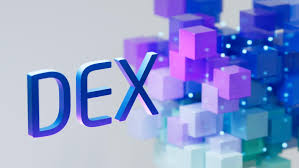More than escrow services, Fidelity may log on to the exchange in January next year to start trading business
According to Ambcrypto's report on December 15, in the latest issue of The Scoop live podcast, Frank Chaparro of blockchain news media The Block interviewed Tom Jessop, president of Fidelity Digital Assets.

(From: Pixabay )
In the interview, Jessop said that hosting meets people's needs for security and stability, which is the basic requirement of the industry. All services, including transactions, are developed on this basis.
- Free and easy week review 丨 Facebook studies how to prevent PoS protocol long-range attacks, Filecoin officially launches testnet
- The market is cloudy and uncertain, take stock of major events in the blockchain industry in 2019
- Comments | The "bottom logic" of the 2020 blockchain industry has changed
Fidelity has been established for decades. What we really need to consider is not necessarily the future 18 or 24 months, but the long-term development of the industry over the next three years, and the potential significance of digital assets for the entire financial service.
Jessop also talked about a recent Bloomberg article about the collapse of 70 cryptocurrency funds. He said that Fidelity is more concerned about the future movements and new businesses of these companies than the failure itself. He said that compared with the rise and fall of early cryptocurrency funds, diversified clients and their interest in this field are better leading indicators.
In addition, Jessop states that Fidelity Digital Assets is not a trading broker and securities firm, and now it provides custody and execution services. He also said that Fidelity will log in to the first exchange in January next year to conduct trading business, but it is not convenient to disclose the name of the exchange.
Cryptocurrency custodian companies are increasing. When answering whether Chaparro market needs so many escrow services, Jessop said that escrow is a basic functional requirement in this field, but Fidelity can provide customers with other value-added services. For example, third parties audit Fidelity's control and security framework, which resonates well with traditional investors.
There will be customers who are not interested in this. They consider other factors, such as potential technology and costs. However, this is not a zero-sum game, and the crypto space is still in its early stages.
Jessop also mentioned the nature of digital assets, which are completely independent and self-custodial. Speaking of how custodians provide services other than custody, he pointed out that a very important step in the transition from self-custody to custody services is to find and use traditional and familiar ways to bring new things to specific groups.
In addition, he said that the current potential liquidity of the market cannot support the inflow of billions of dollars of new capital into Bitcoin, and large-scale investment and liquidity often cause investors to reconsider their impact on the market.
We will continue to update Blocking; if you have any questions or suggestions, please contact us!
Was this article helpful?
93 out of 132 found this helpful
Related articles
- Starting | Deng Jianpeng: Risks and Regulatory Paths of Stablecoin Libra
- Babbit Column | Four basic questions to answer before a blockchain project begins
- Ethereum 2.0 is hopeless in the short term, and unexpected complexity may delay "full launch" for several years
- China Business Daily: Blockchain Application Breaks First, Supply Chain Finance Focuses on Alliance Chain
- Professor Qian Goodbye, Nanjing Normal University: The Practical Application of Blockchain in National Governance and Public Affairs
- DeFi weekly selection 丨 DeFi interest rates continue to fall, where is the market's breakthrough point?
- Filecoin tests online, official team answers 22 questions from miners





